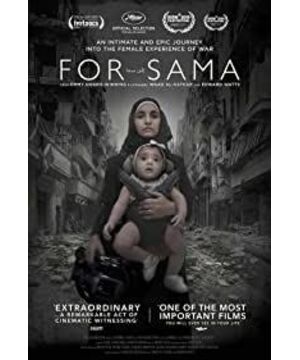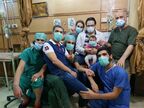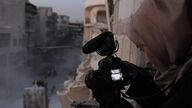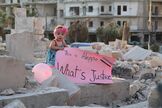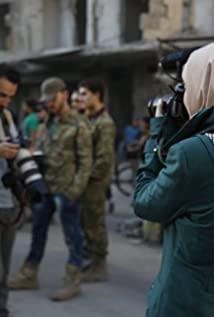The outbreak of the new crown pneumonia in Wuhan has caused more than one billion Chinese people to stay at home. Staying home and self-isolation have become the only reliable and most effective way to fight the spread of the virus.
During this period, in order to relieve loneliness and pass the time, many people decompress themselves by chasing dramas and watching movies, and correspondingly, some movie fans have already begun to miss the days of watching movies normally in the cinema in the past.
Perhaps this is the case with many things. Only when some things disappear can we appreciate their preciousness. These things, like food and air, have already become necessities of modern people, and without them, our life will be lost. into chaos.
At present, the new crown pneumonia is still ravaging the land of China where we live and love. I believe that you and I in front of the screen are also praying for the medical workers who are fighting on the front line, and those corpses are vegetarian and cause the epidemic to spread. Those who are will be cast aside by all.
But no matter what, we all believe that winter will come to an end, spring can be expected, the mountains and rivers are safe, and the world is safe.
On this special occasion, DOCO Hot Records specially planned the "Li Chun" column, with the four themes of "persistence , resistance, reconciliation, and relief" to recommend four documentary films that can both heal the heart and relieve stress. On this day, everything can bloom in spring, and everyone welcomes the return of auspiciousness!
The struggle - the outbreak of the war, she used the camera to write a chronicle for her daughter
For Sama
Director: Waad Al-Khateab/Edward Watts Starring: Waad Al-Khateab/Hamza Al-Khateab/Sama Al-Khateab Genre: Documentary/War Production Country/Region: United Kingdom/Syria Language: Arabic/English Release Date: 2019-05-15 (Cannes Film Festival) Duration: 95 minutes
It's hard to say that this year's Oscars did not put too much emphasis on pan-political perspectives in the selection of the best documentary feature, because almost four of the five shortlisted works are about the current situation of the political environment in other countries. Two of them, "Hospital in the Cave" and "For Sama", both focus on the situation in Syria. It can be seen that this selection mechanism does reflect the mainstream American society's attention to Middle East issues.
However, if you measure the scarcity of positions and values among these five documentaries, perhaps only the film "For Sama" is more representative of the nomination interest of the American Film Institute.
Because this film was not only made by a female director who was not a major in the war, but it also used a lot of POV perspectives in the shooting, and the "Sama" in the film's title is this one. Daughter of female director Waad al-Kateab.
True to the title, "For Sama" begins with the angelic smile of the director's daughter Sama, who is wrapped tightly in a pink-and-white striped blanket as soon as she enters the scene, while her mother is on the other side of the shot. Talk to her and sing softly. Samma opened her eyes wide and reached for a small foot, trying to bring it to her mouth.
But at that moment, there were bursts of violent explosions outside the camera, and the sweet joy was instantly terminated, replaced by terrifying screams and panting running, Waad al-Kateab holding the camera Having to follow the others through the smoke-filled corridors and into the basement to find a safer place, it is only then that we learn that Waad al-Kateab and his daughter Sama are in a Syrian hospital.
In fact, as early as 2011, when protests against the Assad regime broke out across Syria, Waad Al-Khateab, who was still studying economics at the university, picked up his mobile phone and started filming. From there, for the next five years, Waad Al-Khateab chronicled her life almost nonstop, including her love affair, marriage, birth of Sama, and the fight between rebels and government forces for Aleppo .
Through the lens of Waad Al-Khateab, we not only see the various efforts of Syrians of different classes to protest against the Assad regime, including various scenes of marches, demonstrations, and confrontations, but we also see how this resistance has become Another tragic response: bloodshed and sacrifices appear as commonplace in the picture, makeshift hospitals almost become isolated islands of last refuge, and the whole of Aleppo has been reduced to ruins under the bombardment of artillery fire.
However, just behind this unbearable tragic situation, we also saw some precious moments full of warmth: although explosions occurred from time to time, the doctors who stayed in the hospital still risked their lives to rescue the wounded; The city calms down temporarily, and children with nothing to do will play in a bombed-out bus again;
Although people can only eat rice full of rice bugs, the mother who cooks the fire still smiles and tells interesting stories about herself and her husband; and most importantly, Waad Al-Khateab's daughter Sama is also in this difficult situation. Survived the hardships of the imagination.
It can be said that "For Sama" is a film where violence and warmth collide, and Waad Al-Khateab, as a filmmaker and a mother, maintains as much emotional restraint as possible, with a personal perspective and muttering. Whispering creates a chronicle of her daughter Sama, and the struggles, struggles and motherly love that young women have experienced in the Syrian war are also vividly displayed.
After Waad Al-Khateab and her family were evacuated from Aleppo in December 2016, Waad Al-Khateab worked with more experienced British filmmaker Edward Watts, using more than 500 hours of footage she shot, The video content of nearly 12 hard drives has been carefully edited into the current film.
In March last year, "For Sama" not only won the Best Documentary Award at the 2019 South by Southwest Film Festival, but was also screened at the Cannes Film Festival. Later, the film also landed on cable TV and online channels in the United Kingdom and the United States. It was broadcasted many times until the beginning of this year, and it was successfully shortlisted for the selection of this year's Oscar Documentary Unit.
In Waad Al-Khateab's own words, this documentary is not only a letter she wrote to her daughter Sama, she wants to record all the situations that her daughter encountered during the war, but at the same time, this documentary is also her fight against war. And the only weapon of politics, because she also wants to tell the world what is going on in Syria.
View more about For Sama reviews


